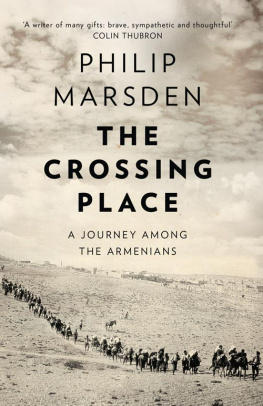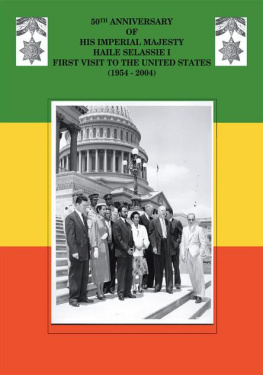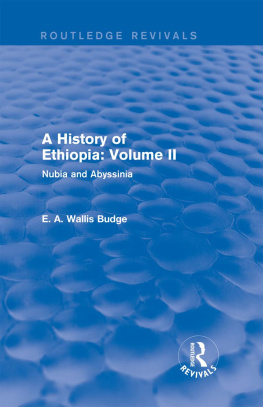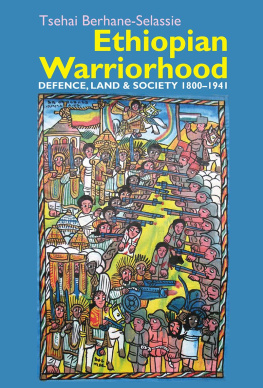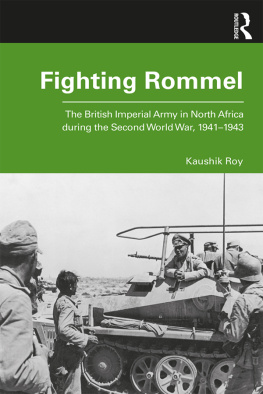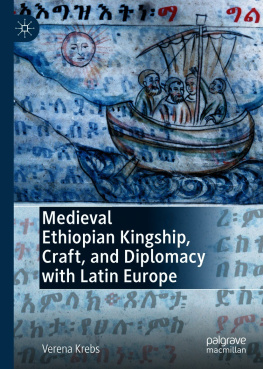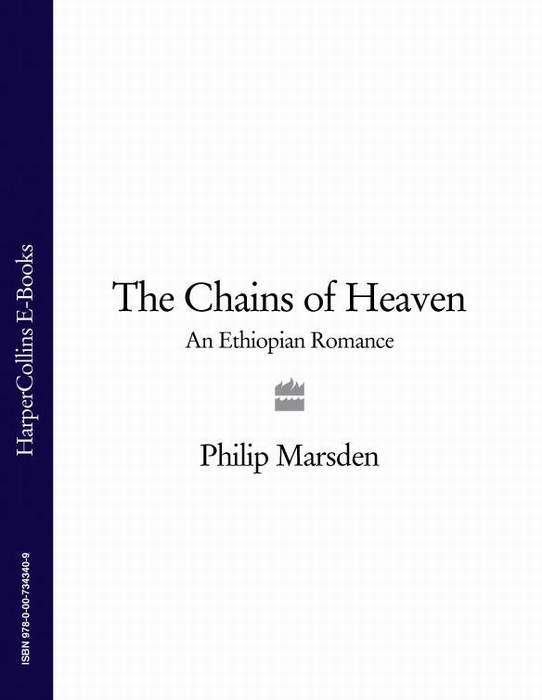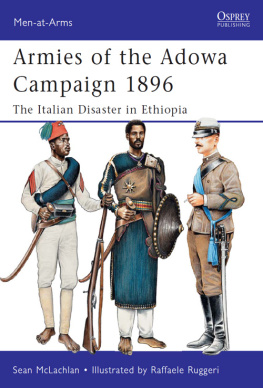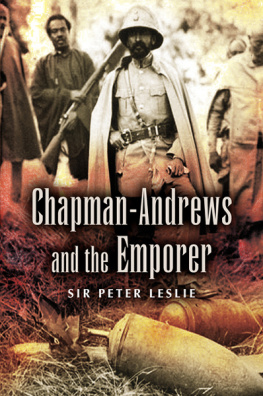
THE BAREFOOT EMPEROR
An Ethiopian Tragedy
PHILIP MARSDEN
To Clio
CONTENTS


AUTHORS NOTE
For the purposes of the story, the names Ethiopia and Abyssinia can be seen as interchangeable. I have used Ethiopia in the text, but have not changed Abyssinia where it appears in quoted material. A degree of revisionist spelling has been necessary to rid Ethiopian places and people of their Eurocentric tarnish thus Magdala becomes Meqdela, Theodore, Tewodros (pronounced with a silent w Te-odros).
Over the years, many hundreds of people have contributed to my own understanding of Ethiopia, its people and its past monks and farmers, scholars and patriots, politicians and painters, all too numerous to mention. But for the Tewodros story particular thanks are due to: Professor Richard Pankhurst, for his encouragement, for digging out references and notes; the historian Shiferaw Bekele of Addis Ababa University, for his time and his clear-sighted view of Tewodros and his legacy; Dr Mandefro Belayneh for his enthusiasm; Hiluf Berhe, as always a tireless walker and perfect companion, for his help in Bahir Dar, Debre Tabor, Meqdela, and for translating the Chronicles of Zeneb; Kidame of the town of Kon, who came with us to Meqdela with his donkeys, for his fighting off of the hyenas that night in the valley of Wurq-Waha; Tony Hickey, for equipment; Sandy Holt-Wilson, an eye surgeon who has gathered together an archive of Tewodross son, Alemayehu Tewodros, and lectures about him to raise money for an eye unit at Gondar University (www. Gondar Eye Site. com); Jean Southon, great-niece of Captain Speedy, who allowed me to see family papers; Colonel Damtew Kassa and his cousins, direct descendants of Tewodros; HE Bob Dewar, British Ambassador to Ethiopia; the Scholarship Committee of the Harold Hyam Wingate Foundation; Susi Rech for translation of the German of Flad and Waldmeier; Will Hobson for his multilingual skills; Roland Chambers for help with Ransome references; Dr Iain Robertson Smith, Colin Thubron, Gillon Aitken, Mike Fishwick, Richard Johnson and Robert Lacey for their support; and Charlotte, whose judgements have greatly improved what follows and whose tireless enthusiasm made producing it so enjoyable.
GLOSSARY
abet a greeting call, used to attract attention, or to acknowledge such a call
abun, abune the head of the Ethiopian Orthodox Church, at this time always a Copt
adarash meeting hall
afe-negus literally mouth of the king, royal spokesman
aleqa chief or head
alga bed, wooden-framed and sprung with a lattice of leather straps; also means throne
amba a flat-topped mountain peak, often surrounded by cliffs, a natural fortress or isolated site for a monastic community
ato Mister
Ayzore! Be strong! Comradely call of encouragement in battle, travel or labour
azmari minstrel, composer and singer of witty verses, accompanied by masenqo, single-stringed fiddle
balderada a chaperon and translator appointed to assist foreign visitors at the Ethiopian court
basha from the Turkish pasha, used for high officials, and with irony in the case of Captain Speedy (Basha Felika)
belg the small rains, usually occurring between late January and early March
bitwedded favourite, court title, used often as qualifier to other titles like ras
debtera a non-ordained rank of the Ethiopian Church, responsible for singing and dancing, and often possessed of peripheral religious powers, as herbalist and spell-maker
dejazmach literally commander of the gate, a military and noble rank just below ras
doomfata the recital of heroic deeds
falasha an Ethiopian Jew
farenj foreigner (adjectival form farenji)
FekkareIyesus The Interpretation of Jesus, Ethiopian sacred text
Fetha Negest laws of the kings, the book of Ethiopian law
fitawrari commander of the frontor vanguard
Galla former name of the Oromo people, originally pastoralists from the southern and eastern highlands
giraf hippo-hide whip
godjo stone-built hut typical of Tigray and the north of Ethiopia
grazmach literally leader of the left, military and noble rank below dejazmach
gugs a game of mock combat, involving two teams of horsemen charging each other: beautiful to watch, hazardous to play
Habesh the name Ethiopians often use for themselves, from the Arabic mixed, and the basis of the name Abyssinia
hakim doctor
hudaddie Lenten fast, fifty-six days long
ichege head monk of Ethiopia, and being native often more powerful than the Coptic abun
ika-bet thing house, repository of church treasures
injera flat bread
isshi ubiquitous Amharic expression, meaning OK/of course/ very well
itege empress or queen
Jan Hoi Your Majesty
kebbero large church drum
Kebre Negest the glory of the kings, Ethiopias mythical charter dating to about the thirteenth century, drawing together many myths including the story of Solomon, Sheba and Menelik their son, and the Ethiopian inheritance of Mosaic law and the Ark of the Covenant
kegnazmach literally leader of the right, military and noble rank below dejazmach
kentiba mayor
kiddus saint or holy man
kinkob ceremonial robe
koso a purgative against intestinal worms, used regularly by Ethiopian highlanders
lemd cape or tunic
lij son or child, used as title for young noble males
liqemekwas high court official
margaf cotton scarf or small shawl
mekdes the sanctuary of a church, the section in which is housed the tabot
mesob free-standing flat-topped basket, on which is spread injera
naib a Turkish name for the local rulers of the coastal region around Massawa
negarit war drum, used to call men to arms, as well as acting as a symbol of authority
negus king
shamma large cotton shawl
shifta bandit
shum regional ruler, military chief
tabot the sacred object at the heart of each Ethiopian church, never seen by laymen, representing both the Ark of the Covenant and the churchs given saint
tankwa boat of lashed-together papyrus, used on Lake Tana
teff indigenous Ethiopian wheat used to make injera
tej mead
tella bet beer house
thaler the Maria Theresa thaler, common currency of the highlands, minted without alloy, and equivalent to about six shillings at this time
Tigrigna the language of Tigray, northern Ethiopia, derived as Amharic from Geez and the Semitic family of languages
timtim white turban worn by priests
wat sauce
weyzero Mrs
PROLOGUE
I
Yetewodrosmenged. The monks finger pushed out from the folds of his shawl, far out into the morning, to a shadowy line on the opposite slope. Tewodross road.
Next page

